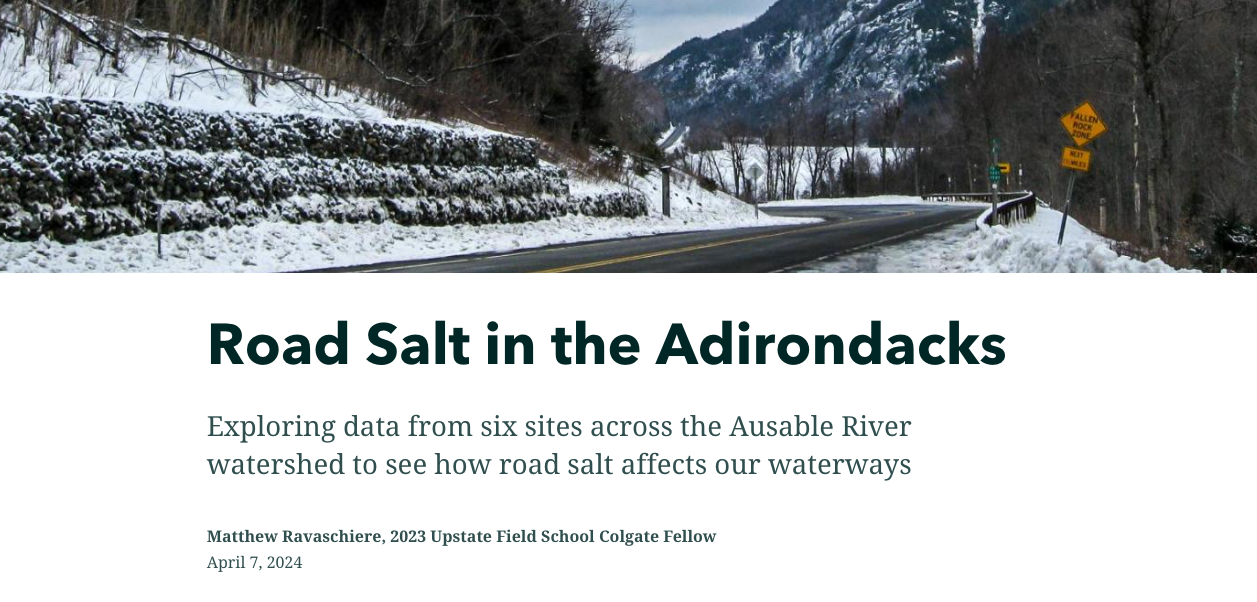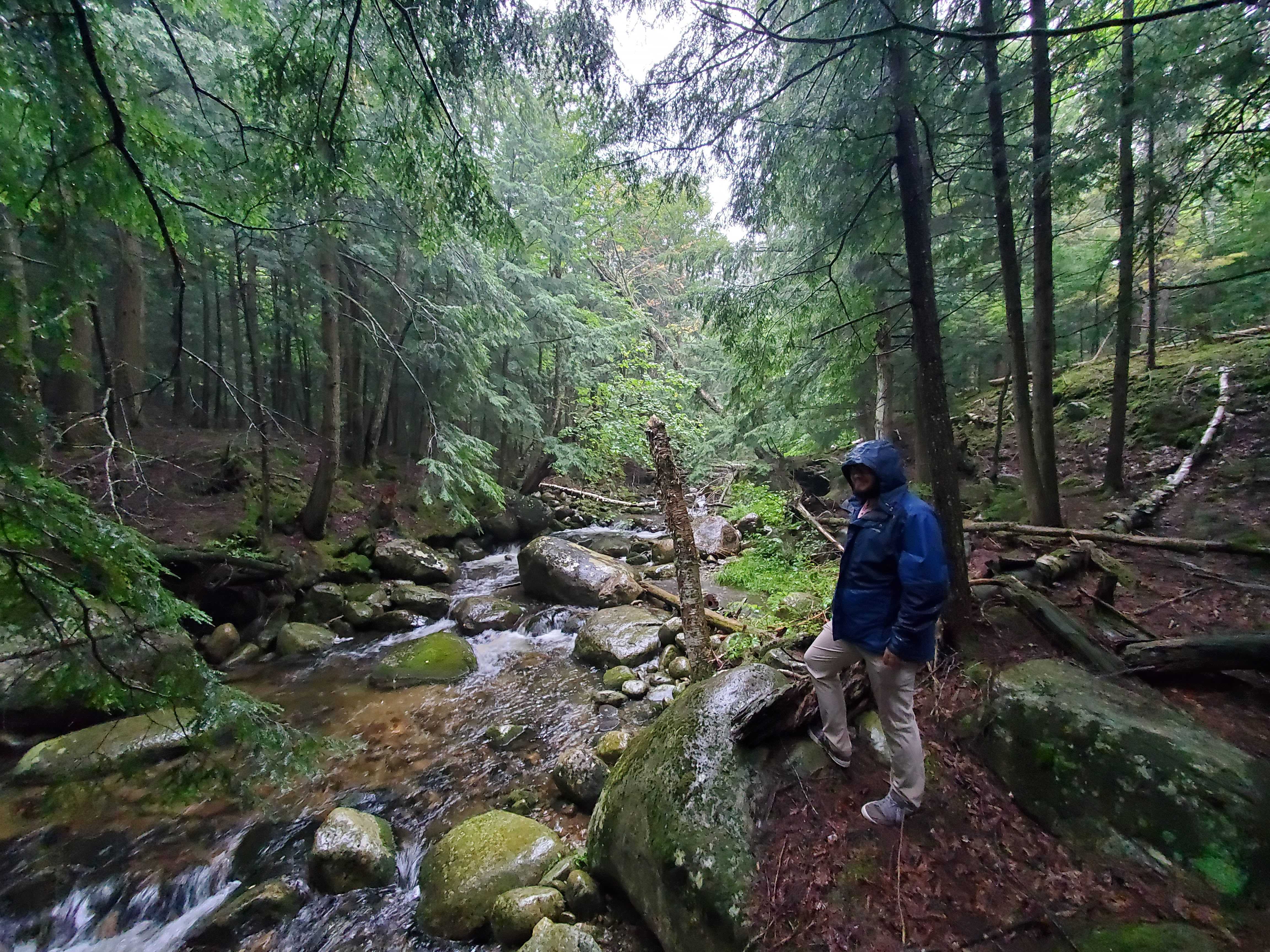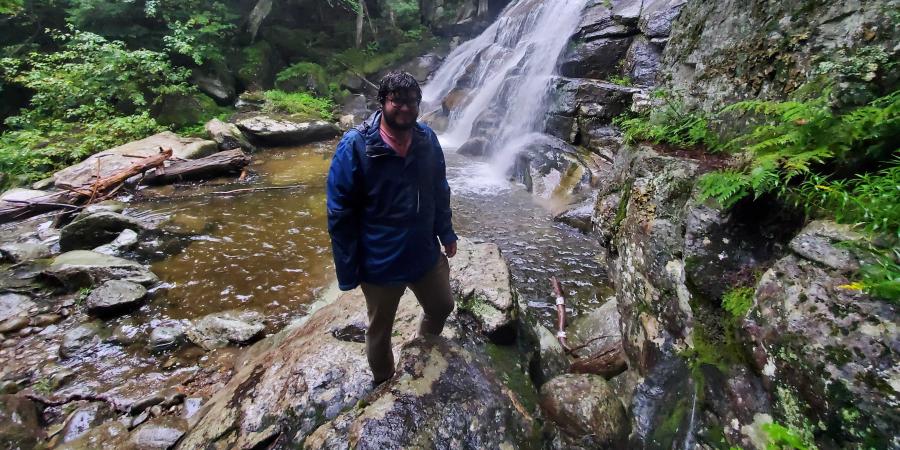I'm Matthew Ravaschiere, Colgate University Class of '24. Last summer I had the opportunity to work with the Ausable River Association (AsRA) in the Adirondack Park as a Colgate Upstate Institute Field School Fellow. AsRA monitors the health of brooks along the Ausable River through water quality testing, temperature monitoring, fish health, and tracking of invasive species, and also engages in mitigation projects such as stream restoration. These projects are carried out both independently and with help from local community partners and volunteers. One community-engaged project is the Streamwise Assessment Program, which evaluates and educates landowners on stream management practices. This includes native vs. invasive species density, biodiversity, and tracks on development within 50 feet of streambanks. All participants, whether or not they meet these standards, are advised in individual reports on how to improve their properties under best stream management practices. These projects serve the local community, helping to keep the waters healthy for generations to come.
As a research fellow this summer, I helped monitor for invasive species, impacts of climate change, and road salt. I performed bi-weekly water quality tests that aided me in some of these projects. I monitored for invasive species during streamwise assessments, and educated property owners on which species to remove. I also participated in a purple loosestrife pull event to engage community members and helped teach them how to identify and remove this insidious invasive species.

To monitor climate change impacts, AsRA uses temperature loggers to measure water temperature year-round, which allows them to capture daily fluctuations in temperature that might impact the river. This, combined with bi-weekly snapshots from water quality testing, builds a robust picture of river status. AsRA uses similar methods to monitor road salt in streams. The collection of water quality data began in 2015 and is what I analyzed during my research on the subject.
Road salt enters Adirondack waterways through road salt application for snow and ice and negatively impacts waterways as it disrupts the natural nutrient cycling which feeds back onto the organisms that live in it, such as fish and insects (Tiwari and Rachlin, 2018). The salt also leaches into groundwater which can impact human drinking water and health. As part of my work, I reviewed 8 years of AsRA water quality data, focusing on the specific conductance values related to road salt to determine which sites had the highest recorded levels. I hope that by analyzing these data and determining which of the brooks that feed the river are most impacted, AsRA or town and state highway managers can begin implementing programs to reduce road salt usage along these stretches of river and improve water quality for ourselves and the animals who call these waterways home.

Link to Matthew's final project about stream water quality and road salt here.
As a biology and environmental studies major at Colgate, being able to do work that applies to both my fields of interest has been an incredible opportunity. I have gained experience doing field work and learned how to more efficiently organize and analyze data. I have always loved field work, having experienced it firsthand at the Field Study Council in Scotland during my time in Wales with Professor McHugh. While there, we performed several surveys in different intertidal environments across the island of Millport. This summer I wanted to do more fieldwork in aquatic and terrestrial environments. and AsRA gave me that experience in both fields, which I am incredibly thankful for!


